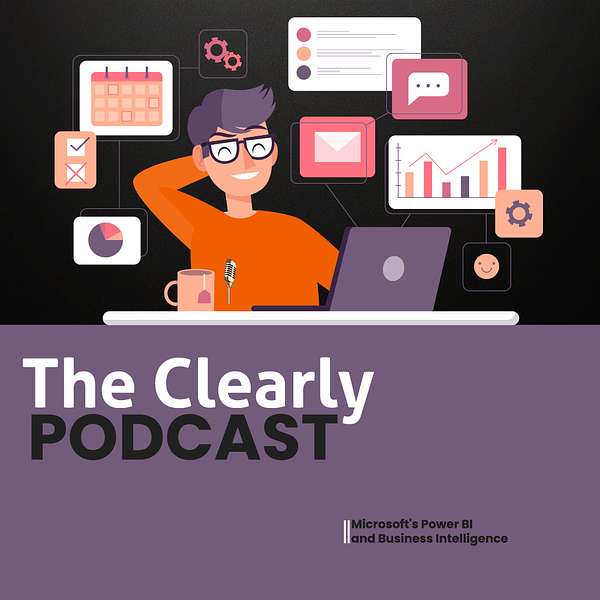
The Clearly Podcast
The Clearly Podcast
Migrating Your SQL Server to the Cloud
In this podcast, the consultants discuss the topic of migrating SQL Server to the cloud. They highlight the benefits of cloud migration, such as cost savings and technological advancements, and note that cloud skills are becoming essential in the job market.
Despite the prevalence of cloud migration, many organizations still use on-prem SQL, including older versions that are becoming unsupported. The consultants emphasize the need for planning, especially with SQL 2019 soon falling out of mainstream support.
They outline various migration options:
- Moving the entire database.
- Moving subsets of data using tools like Azure Data Factory.
They also mention tools to assist in migration, such as Azure Migrate, Azure Data Studio, Backpack files, Bulk Copy, and Data Factory. While transactional replication offers minimal downtime, it is complex and requires skilled DBAs.
The discussion touches on scenarios where organizations might choose not to migrate to the cloud, such as having managed data centers, legacy applications, high-security needs, or limited connectivity.
The consensus is that cloud migration is inevitable for most organizations over the next decade, except for specific edge cases. Hybrid models are effective, particularly as transitional steps, but will likely shift fully to the cloud over time.
The podcast concludes with a note on the importance of assessment tools for migration and a preview of the next episode on "What is a Lake House?". The consultants offer their assistance with migration projects and ongoing maintenance of SQL servers.
You can download Power BI Desktop from here.
If you already use Power BI, or are considering it, we strongly recommend you join your local Power BI user group here.
To find out more about our services and the help we can offer, contact us at one of the websites below:
UK and Europe: https://www.clearlycloudy.co.uk/
North America: https://clearlysolutions.net/
Tom: We're going to talk about migrating your SQL Server to the cloud.
Andy: Oh, it's riveting, isn't it? If I snooze off at any point, you can't wake me. Maybe we should have long-distance electric shock things to keep us awake.
Shailan: We'll stop for a future hot chocolate.
Andy: So, Tom, why bother migrating to the cloud?
Tom: There are benefits like cost savings and technological advancements. Also, cloud skills are becoming essential, making it hard to recruit people who only know on-prem solutions.
Andy: Though, there are third-party consulting firms like us that offer support plans. So, Tom, how much SQL on-prem is still out there?
Shailan: A lot. Many projects still use on-prem SQL, even if it’s in data centers rather than onsite. We also deal with older versions like SQL 2012, 2014, and 2016, which are becoming unsupported.
Tom: Exactly, SQL 2019 will fall out of mainstream support next year. Organizations need to plan now whether to upgrade on-prem or move to the cloud.
Andy: So, Tom, what are the options for migrating SQL to the cloud?
Tom: There are different approaches depending on what you want to move:
- Whole Database: Moving everything, potentially to Azure SQL.
- Subsets of Data: Using tools like Azure Data Factory to move only relevant data.
For most, reducing the amount of data moved simplifies the migration and lowers costs.
Andy: Time for a good old spring clean then.
Tom: Yes, it's tedious but crucial for smoother operations.
Andy: So, what tools are available to help customers migrate?
Tom: Various tools can help:
- Azure Migrate: Assesses and helps migrate on-prem data sources to the cloud.
- Azure Data Studio: Useful for shifting entire databases.
- Backpack Files: For a clean transfer of database structure and data.
- Bulk Copy and Data Factory: For selective data transfer.
Transactional replication offers minimal downtime but is complex and requires skilled DBAs.
Andy: Shailan, when might someone choose not to move to the cloud?
Shailan: If they have a managed data center, legacy applications, or if the system works well on-prem. Also, organizations with high-security needs or limited connectivity, like defense or oil rigs, may avoid cloud migration.
Andy: Is the move to the cloud inevitable for most organizations over the next 10 years?
Tom: Yes, except for edge cases with security or connectivity constraints. Most will migrate due to the benefits and evolving technology landscape.
Andy: What about a hybrid model? How effective is that?
Shailan: Hybrid models can be effective, especially as a transitional step. For instance, local databases for real-time operations and cloud for data warehousing and reporting.
Tom: Long-term, most hybrid models will migrate fully to the cloud as technology and connectivity improve.
Andy: Anything we missed on this subject?
Shailan: Just a reminder of the assessment tools available for migration, like Azure SQL assessment tools.
Andy: Alright, I think we’ve covered everything. Migrating to the cloud can be complex but beneficial, and we’re here to help. Thanks for listening, and we’ll tackle “What is a Lake House?” next week. Goodbye!